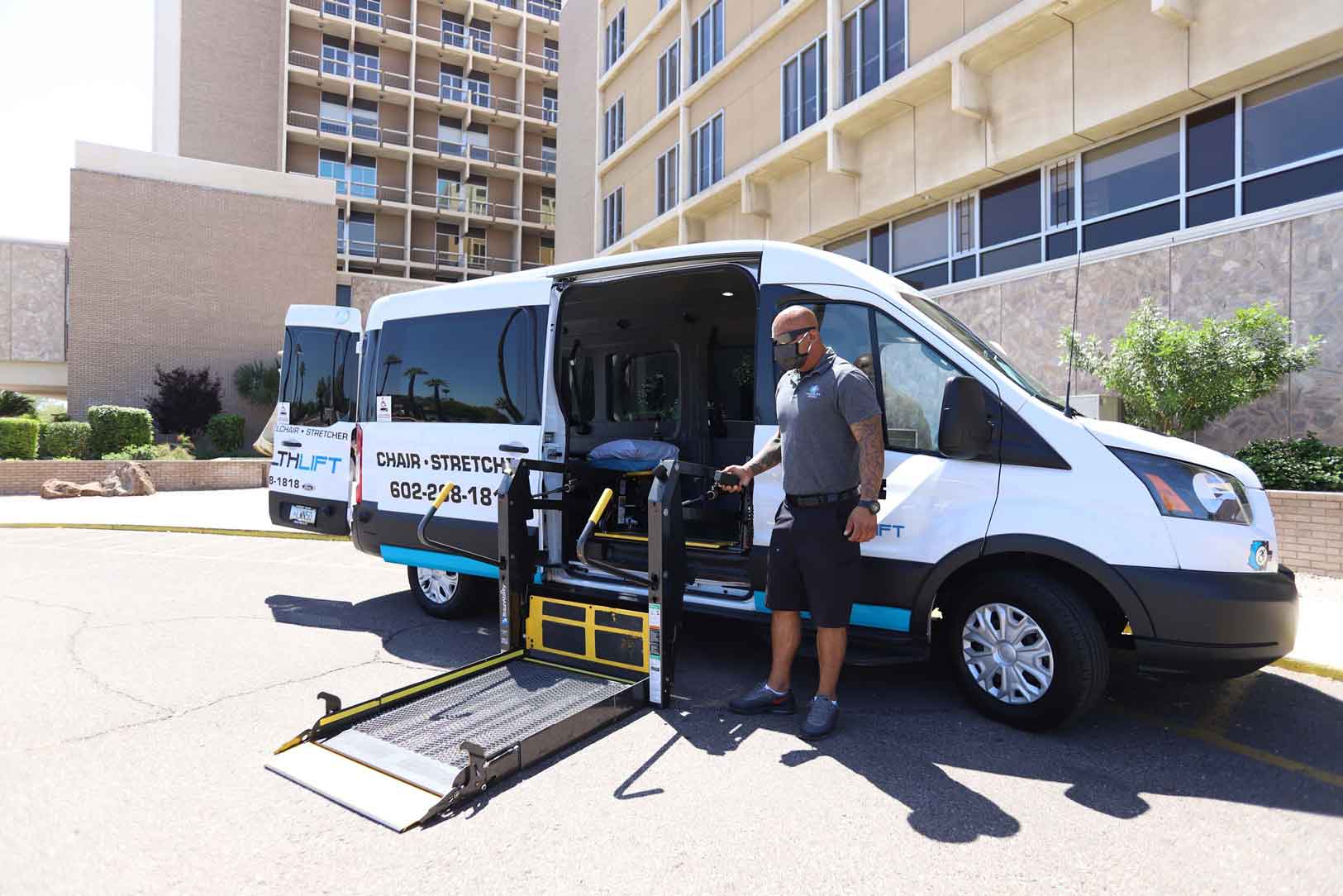Accessible and Affordable Medical Transport Options for Seamless Health And Wellness Assistance
In the world of medical care, the access and cost of clinical transport are paramount in guaranteeing people can access the treatment they require when they require it. From non-emergency medical transportation services to ingenious remedies like telehealth, the landscape of clinical transportation is progressing to fulfill the diverse requirements of individuals.
Non-Emergency Medical Transport Services

These services are staffed by qualified specialists that prioritize patient comfort and security during transportation. Drivers are geared up to manage individuals with differing clinical demands and make sure that all trips are hassle-free and smooth - Medical Transportation Services Near Me. Furthermore, non-emergency medical transportation services typically make use of specialized vehicles that are wheelchair-accessible, making them suitable for a vast array of patients with different wheelchair demands
Volunteer Motorist Programs
Volunteer motorist programs contribute in supplying transportation support for individuals seeking non-urgent treatment. These programs rely upon the kindness of volunteers who donate their time and cars to help transportation people to and from clinical visits. By utilizing volunteer drivers, organizations can offer an affordable solution for people that may not have access to reputable transportation.
Among the vital benefits of volunteer driver programs is the individualized treatment and interest that patients obtain. Unlike standard transportation solutions, volunteer motorists often develop a relationship with the people they assist, developing a helpful and compassionate atmosphere throughout what can be a difficult time. Additionally, volunteer motorist programs can help link the void for individuals staying in underserved or country areas where public transport alternatives might be limited.
Public Transport Options

One of the crucial benefits of mass transit is its extensive availability in urban and country areas alike. This comprehensive network allows people from diverse backgrounds to take a trip to medical appointments with relative convenience. In addition, public transport systems are often geared up to accommodate people with specials needs, supplying easily accessible travel alternatives for those with movement obstacles.

Ride-Sharing and Transportation Network Firms
The click to find out more evolution of contemporary transport alternatives for medical purposes extends past typical public systems like trains and buses to include the cutting-edge realm of ride-sharing and transport network firms. Ride-sharing solutions such as Uber and Lyft have transformed the means individuals travel to clinical visits, offering ease and flexibility to patients that might not have access to their vehicles or typical public transportation. These platforms permit customers to request an adventure with the touch of a button on their mobile phones, giving door-to-door solution that can be especially useful for individuals with movement difficulties or those calling for help.
Transportation network business (TNCs) have actually likewise played a considerable duty in connecting the void in medical transportation services. Firms like Veyo and RoundTrip concentrate on non-emergency medical transportation, satisfying clients who require a higher degree useful during their journeys to medical centers. By partnering with doctor and insurance companies, TNCs make certain that clients can access timely and trustworthy transportation solutions, inevitably adding to enhanced health results and patient fulfillment.
Telehealth and Digital Appointments
Enhancing medical care accessibility and comfort, telehealth and virtual assessments have arised as crucial parts in modern-day clinical practices, transforming the way clients engage with medical care service providers. This approach not just conserves time and reduces transportation prices for patients but additionally enhances the overall performance of health care shipment.
Furthermore, telehealth plays an essential role in prolonging medical services to underserved communities, rural locations, and people with minimal flexibility. By breaking down geographical obstacles and boosting healthcare outreach, telehealth advertises early intervention, continuity of care, and patient interaction. As innovation remains to breakthrough, telehealth is poised to play a significantly significant duty in shaping the future of medical care distribution, promoting improved health and wellness end results and my response client satisfaction.
Conclusion

From non-emergency clinical transport services to innovative solutions like telehealth, the landscape of medical transport is progressing to satisfy the diverse needs of people.Non-Emergency Medical Transportation Solutions promote the risk-free and prompt transportation of individuals calling for non-urgent clinical care to and from health care facilities.The evolution of contemporary transportation options for clinical functions extends past conventional public systems like buses and trains to include the cutting-edge realm of ride-sharing and transport network companies.Transportation network firms (TNCs) have additionally played a considerable duty in connecting the void in clinical transportation solutions. Non-Emergency Medical Transport Services, Volunteer Vehicle Driver Programs, Public Transportation Options, Ride-Sharing and Transportation Network Business, and Telehealth and Virtual Consultations all play an essential duty in addressing transport obstacles to healthcare gain access to.